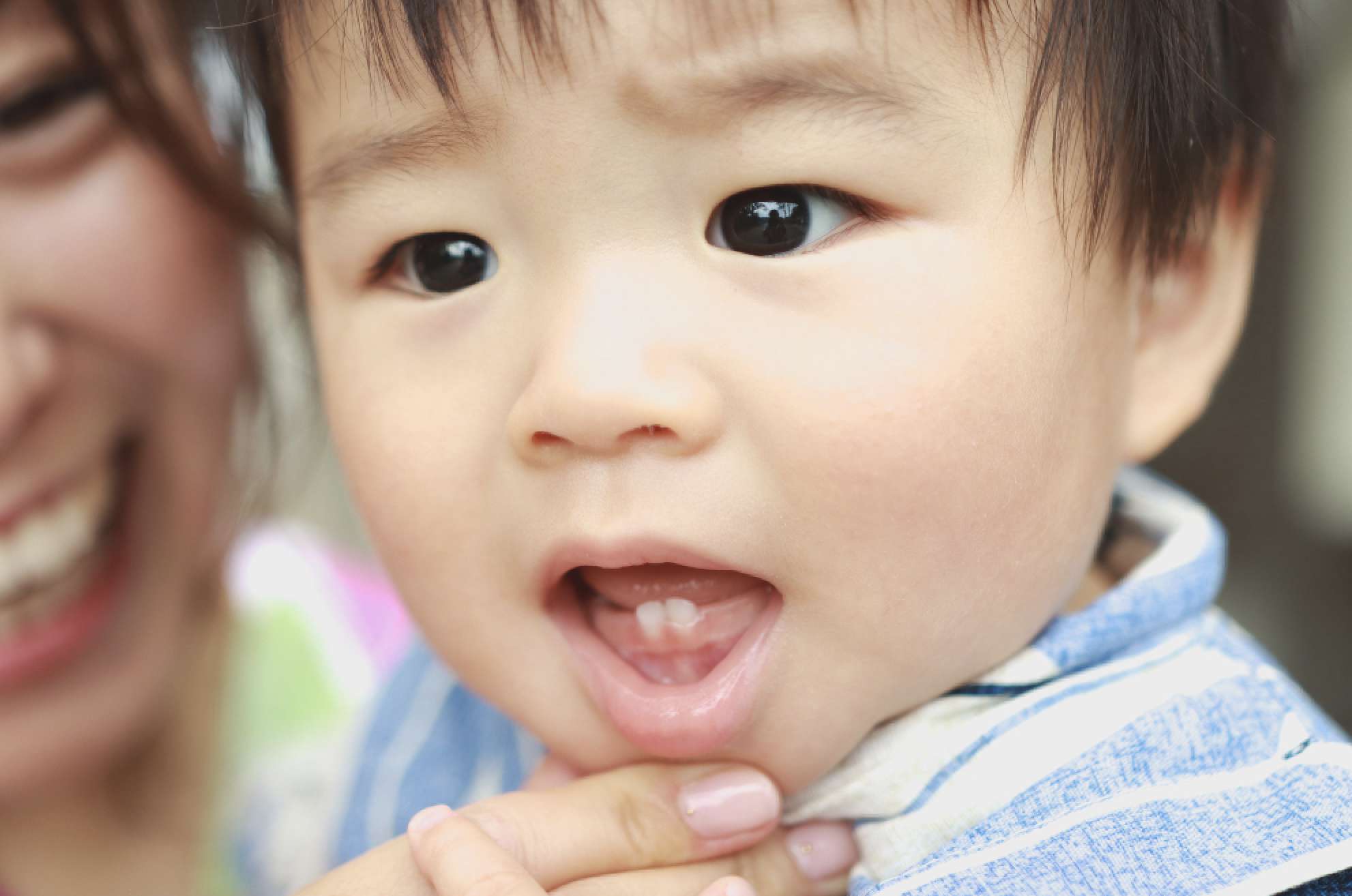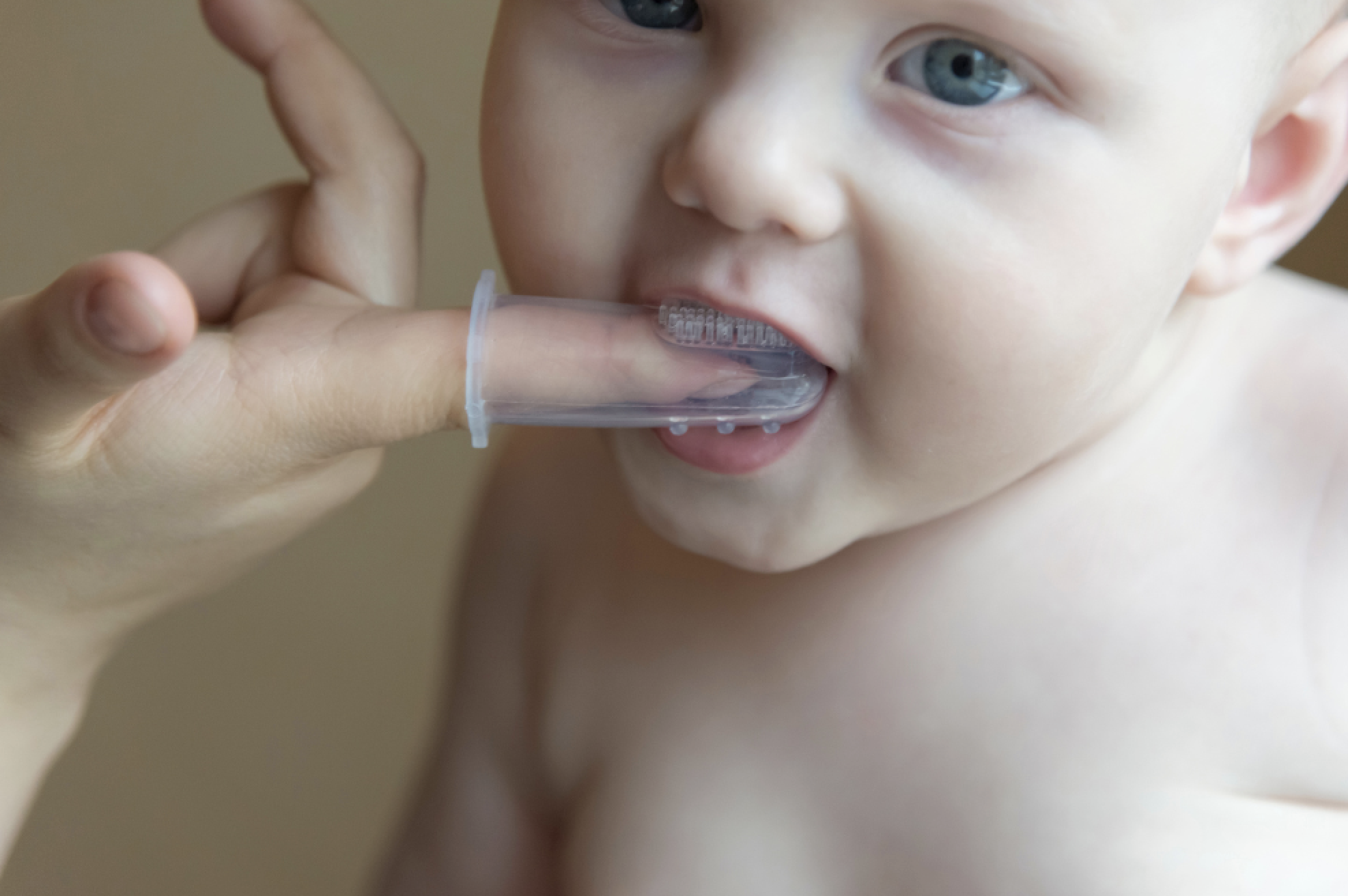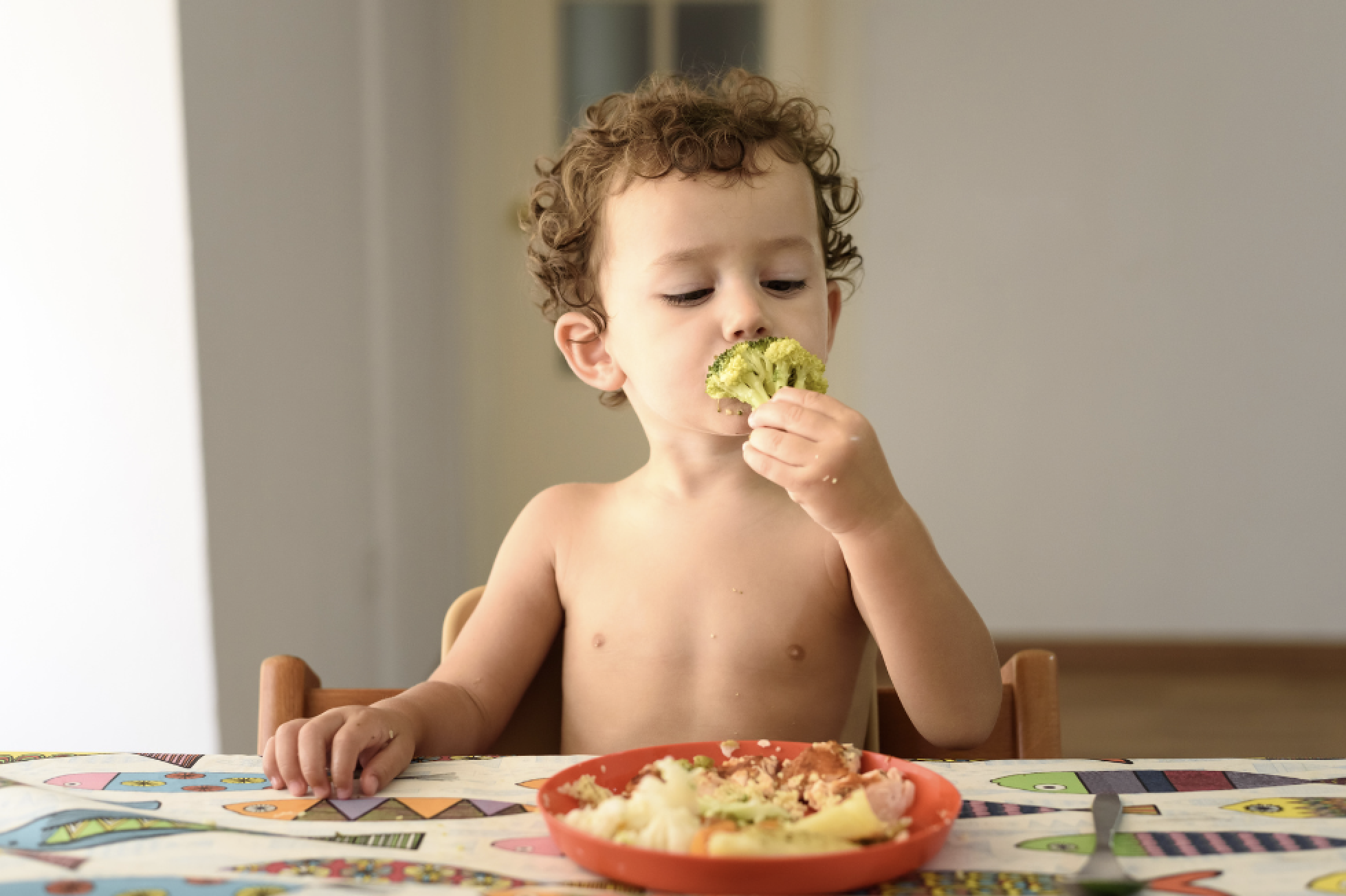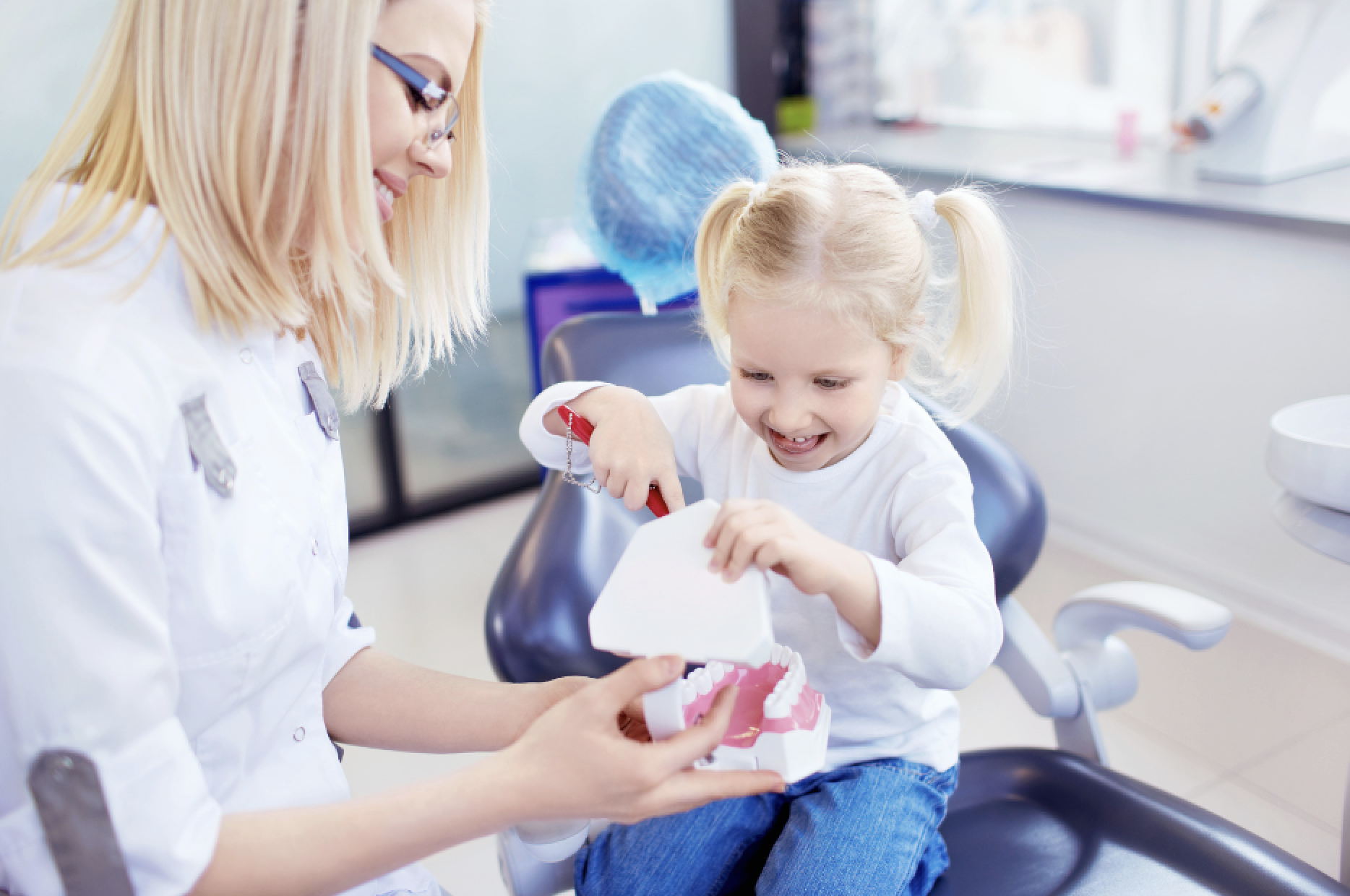
Ask DadPad, Health & Wellbeing, Parenting Advice
Ask DadPad: How do I care for my baby’s and toddler’s teeth?
Posted on 24th March 2023
This Monday was World Oral Health Day, which encourages us to be proud of, value and take care of our mouths. The specific theme for this year has been to focus on the importance of oral health at every stage of our lives, because caring for our mouths and looking after our oral health is so important.
As parents, we need to take responsibility of our children’s oral and tooth care for the first few years of their lives, as they’re not able to, and lead by good example. However, caring for our baby’s and children’s teeth is perhaps an aspect of early parenthood which often gets overlooked by things which seem more pressing and difficult – such as nappy changing, night-time waking, and feeding.
The need for improved care of children’s teeth is emphasised though by reports and statistics which have recently come to light, including Government figures quoted in an article in the i newspaper at the weekend which “show that tooth decay remains the most common reason for hospital admissions in children aged six to 10, with more than 25,000 children having decaying teeth removed in hospital last year.” What’s perhaps even more worrying, though, is that these post-pandemic statistics are lower than they have been, with over 35,000 extractions due to teeth decay having taken place on children under general anaesthetic in 2019-20.
David Fothergill, chairman of the Local Government Association’s community wellbeing board, has also commended that:
Untreated dental conditions remain one of the most prevalent diseases affecting children and young people’s ability to speak, eat, play and socialise.
Clearly, the thought of contributing to an outcome which impacts on our children’s ability to do any of those things – or even to end up in hospital – is something that would strike horror into the heart of any parent, so what can you do to minimise the chances of that happening to your child?
The good news is that there are some fairly simple steps that you can take to help your baby, toddler and child’s teeth develop healthily; Karen Coates – Oral Health Content Specialist at the Oral Health Foundation – has been quoted as saying that these negative outcomes can be “reduced by a good diet and an effective dental hygiene routine at home.”
And there are lots of great resources easily available online, including this leaflet from the Institute of Health Visiting, part of its Parent Tips series: Looking after your children’s teeth.
When will my baby get their teeth?
Before we look at dental and oral health care in more detail, you probably want to know a bit more about your baby’s teeth in general.
Whilst some babies will be born with what are called ‘natal teeth’ (according to the British Society of Paediatric Dentistry (BSPD), this phenomenon happens in less than 1% of babies), most start to obtain their first of their 20 ‘milk teeth’ when they are around 4-6 months old; whilst all babies and children will differ, the teeth usually come through in a set pattern (e.g. the two teeth at the lower front are usually the first to appear, with the upper front pair following next) and all 20 milk teeth are normally in place around the time of your child’s 3rd birthday.
Even though these milk teeth or baby teeth (their scientific name is ‘deciduous teeth’) will eventually fall out and be replaced by a full set of permanent adult teeth, it’s still really important that we care for them.
Firstly, whilst your child will naturally start to lose some of their teeth by the time they’re around six years old, other milk teeth may still be in their mouth into their teens, and that’s a long and critical period of their life! They’ll need healthy teeth to help with their speech development (which obviously also links into things like successful communication, education and social development), healthy eating (which might be difficult if their teeth or gums are in pain) and self-confidence. They might also suffer discomfort and/or have to have time off school – as dentist Philippa McNee notes in an interview with NCT:
If teeth are not cared for, they can decay and cause pain, abscesses, facial swelling, and will ultimately require treatment.
The other key reason to care for these milk teeth is because they have an important role to play in your child’s developing mouth: “they hold space for the second teeth to descend into.” (BSPD)

Brushing teeth
Brushing your baby’s teeth is something that many new parents aren’t sure about – when do you need to start?
The general advice is to start as soon as your baby’s first teeth appear – or even before – and you should use either a soft baby toothbrush or even a piece of gauze or cloth wrapped around your finger, with just a small, flat smear of fluoride toothpaste. Brush their teeth and/or massage the paste around their gums every morning and every night – the key aim at this stage is not to worry too much about the accuracy or quality of your brushing, but simply to get your baby used to the sensation, and the routine.
The Oral Health Foundation recommend that the easiest way to do this with a young baby is to cradle their head in your arms in front of you, whilst the NHS suggest having your baby sitting on your knee with their head resting against your chest. Try different positions until you find something that works for you and your baby.
Some babies and young children will not enjoy or appreciate having their teeth brushed, and so you might need to try other tactics – but it’s crucial that you persist. The NHS suggests making it into a game, or brushing your teeth together.
It’s also worth investigating some of the huge variety of innovative baby-friendly tooth and gum cleaning options that are now available, too – such as chewable toothbrushes and finger toothbrushes.
And, for parents of children with autism or sensory issues, the BSPD have a really helpful booklet – Advice for parents of children with autism – available to download from their website.
The advice then is to carry on brushing – or helping with or at least supervising the brushing of – your child’s teeth until they are at least seven or eight years old, to make sure a good job is being done. You should also check that they’re using the correct amount of toothpaste – from three years, the advice is to move from the flat smear to a pea-sized amount of paste – and brushing for two minutes each time.
As they get older, and have more teeth, the NHS advise that the brushing should be done using small circles, with the child spitting out the toothpaste afterwards, but NOT to rinse, as this will wash away the protective fluoride.
For more information on brushing your child’s teeth, click here to see an NHS YouTube video.

Healthy eating
Another really key thing that you can do for your baby’s future oral health is to learn all you can about the impact that sugar has on teeth. Whilst reducing sugar is important for everyone’s diets and oral health, it’s especially critical for babies and children with milk teeth. This is because, as these teeth only serve a temporary purpose, they’re not as robust as their adult teeth will be. The BSPD explains:
Because the enamel [on these first teeth] is thin, milk teeth are more likely to be affected by decay and erosion if exposed to too much sugar or acidic drinks.
There’s great information on sugar and healthy eating on various NHS webpages, including:
- Sugar: the facts – covering what sugar is, how much we should eat, and tips on cutting down;
- Better Health – Healthier Families: Sugar – lots of family-focused advice on the effects of too much sugar, foods to watch out for (including lots of toddler- and child-friendly treats and snacks like dried fruits, juices, yogurts, breakfast cereals and cereal bars), and suggestions for healthy swaps;
- Change4Life Sugar Swaps – a downloadable leaflet setting out ‘simple ways to help your kids eat less sugar’; and
- How to cut down on sugar in your diet – with an overview of the ‘hidden’ ways that sugar can be listed on ingredients labels, plus suggestions for healthier options at meal times.

Bottles and cups, dummies and thumbs…
Some key toddler-focused advice on reducing sugar and tooth decay from drinks is also provided by the NHS and the BSPD including:
- Offer babies and young children plain milk or water as drinks wherever possible, avoiding sugar-sweetened drinks (such as juices and squash/cordial);
- At bedtime and at night, only offer your child breast milk, formula milk or cooled boiled water;
- Whilst it’s ok to use them to feed expressed breast milk, formula milk or cooled boiled water to babies, bottles should be avoided if you are offering babies or toddlers juices or sugary drinks;
- And, from six months old, babies should be encouraged to drink from non-valved free-flowing or open-top cups – with no bottles being used after their first birthday.
This latter point links in with advice on dummies and thumb-sucking. Whilst both the NHS and BSPD are in agreement that these can be a valuable source of comfort to young babies, dummies should never having anything added to them, such as a sugary drink, or be dipped in sweet items, such as jam. Further, the advice is to try and avoid using dummies once your baby is a year old, and to aim to discourage thumb sucking in the longer term, as both can affect the way in which baby’s teeth develop and baby’s speech development. Your dentist or Health Visitor will be able to offer advice, if you have concerns about this (or, indeed, any of the points covered in this article).
Visiting the dentist
The final thing that you can do for your baby and toddler to help their long-term oral health is to help them to be familiar and comfortable with regular visits to the dentist. As well as booking them for an appointment of their own – ideally soon after they get their first teeth, and definitely before their first birthday – try taking them along when you, your partner or their older siblings go for routine check-ups. Be mindful, though, of your own potential worries – if you are nervous about visiting the dentist, you won’t want to pass these fears onto your own children, so see if there’s someone else who can take them along to appointments (such as your partner – or vice versa, if the roles are reversed).
There’s information on finding your nearest NHS dentist with capacity for new patients – and what to do if you have problems with this – via the NHS How to find an NHS dentist webpage.

TOP TIPS FOR GOOD TEETH HEALTH FOR YOUR BABIES AND TODDLERS:
- Get them used to, and familiar with, brushing their teeth twice a day from a really early age;
- Make sure that they are not drinking or sucking on things with lots of sugar – ideally, only ever offer breast/formula milk or water;
- Familiarise yourself with the advice on healthy eating, avoiding too much sugar, and reducing non-meal-time snacking – and make sure you know which apparently-healthy snacks and drinks are actually a real ‘hidden danger’ to your toddler’s teeth;
- Work on reducing the use of dummies, bottles and thumb-sucking as soon as possible, and ideally by the time your child is a year old; and
- Ensure your child has regular check-ups with their dentist.
References and further reading:
- British Society of Paediatric Dentistry (undated) A practical guide to children’s teeth. [downloadable online]
- Institute of Health Visiting (2023) iHV Parent Tips: Looking after your children’s teeth. [downloadable online]
- Kirby, Jane (2023) More than 25,000 children had decaying teeth removed in hospital last year. The Independent newspaper [online]
- NCT (undated) Why teeth care is important for babies. [online]
- NHS (undated) Sugar Swaps – Simple ways to help your kids eat less sugar. [online]
- NHS (2019) How to find an NHS dentist. [online]
- NHS (2020) Sugar: the facts. [online]
- NHS (2022) How to cut down on sugar in your diet. [online]
- NHS (2022) Looking after your baby’s teeth. [online]
- NHS Better Health Healthier Families (undated) Sugar. [online]
- Oral Health Foundation (undated) Children’s teeth. [online]
- Salmon, Lisa (2023) Children’s dental health ‘a national disgrace’ – 9 hacks for healthier teeth. The Independent newspaper [online]
- Sandhu, Serina (2023) Children’s teeth go back to 1940s. The i newspaper [18 Mar 2023]

